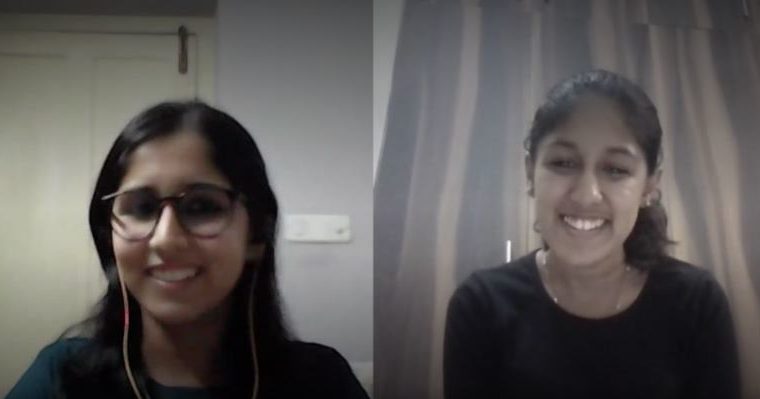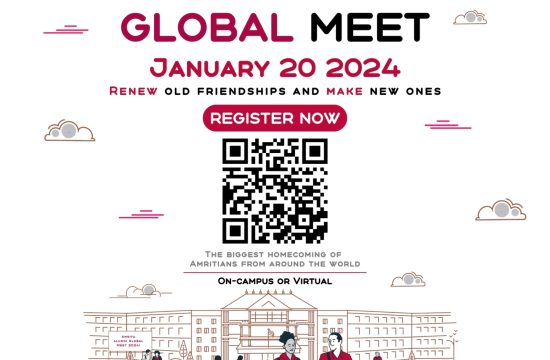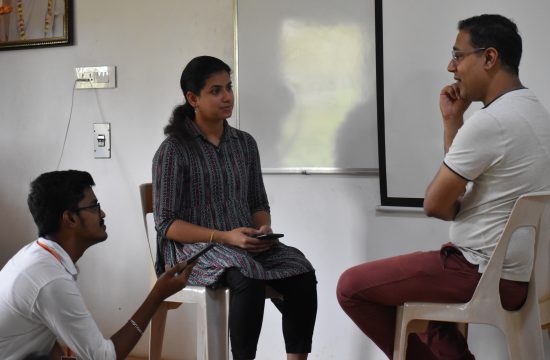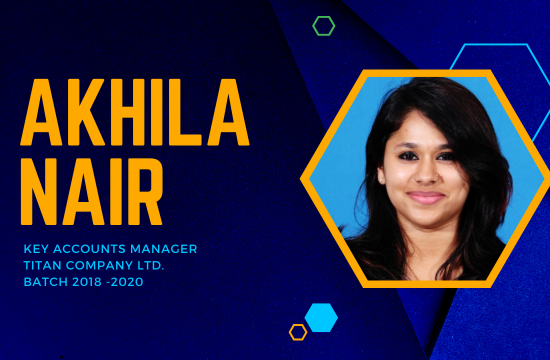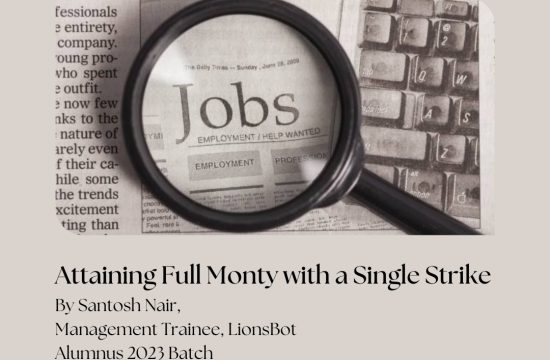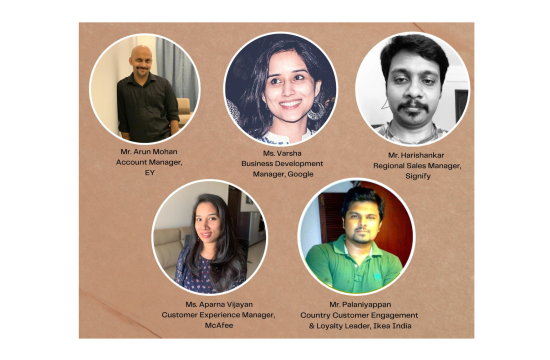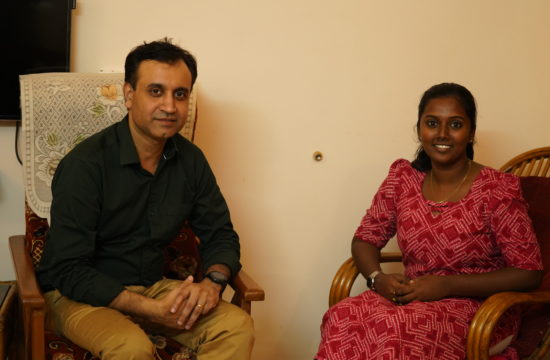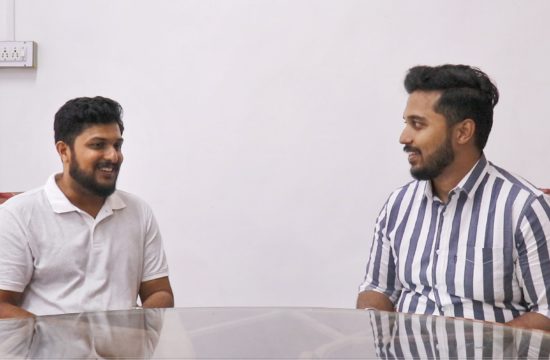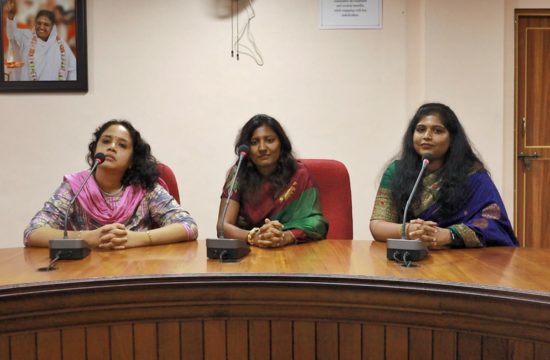Hi everyone Welcome to our second episode. We have a very special guest today; she is the University Gold medalist from the 2019-2021 batch and she currently works at Hindustan Unilever. Let’s welcome Dharasana S Kumar
Q: One of the criteria for getting a gold medal at the University level is to publish a Scopus indexed journal paper – could you brief us about how your publishing went on?
Like everyone, I did not have any idea regarding the process when I came here, so I just talked to some seniors to understand the process and how they went to select the mentors at the end of first year. Suresh sir was my mentor and he had been constantly guiding me from topic selection to very end till paper publishing. He was particular with the timeline as well. We started at the beginning of 2nd year by almost the mid of 2nd year I finished my data collection and analysis part. So, we had enough time to do the presentation and publications works as well. Second half of the 2nd year went on with that process, the timeline is the process for the publications, I guess.
Q: Given that Amrita MBA students have to deal with overlapping deadlines and a tight schedule, and the fact that your batchmates were the proverbial “COVID batch” how was your approach in handling it?
Yes, in MBA there was indeed overlapping deadlines and tight schedules especially during the online classes it was very difficult to handle, and I would say that it is teamwork. You must be part of a very good team. And you must build a good rapport with your team members. So that it is the main point, I guess. As we started with online it was very difficult to develop the understanding between our team members. In that case I would say that I was very fortunate to be in the part of team with Arun, Vidya. We gradually developed the great bond, we used to plan things early, like one or two weeks before based on our commitments and how to go with our subjects I felt very easy and did not feel any pressure.
Q: How did you go about selecting your domain?
By beginning of 3rd semester, our faculty had organized a session on the understanding of the domain. In that session, they explained what each domain is about; so that session greatly helped. From the subjects, we had in our 1st and 2nd semester I got an idea on what my liking was and where my interest was. So, I was particular that I choose the domain based on my liking or interest and not based on placements or something. It was purely choosing the domain based on my liking.
Q: Since you were the “COVID batch”, did it have any impact on your placement interviews?
Yes, all of our training process – aptitude, GD, and interview- happened in Online mode but even then, we lack the experience that was purely visible in our placements. We would sit for the placements, but, we did not know how to go about with that we lack of experience. It really affected our initial stages once we came back to the campus, we got used to the process and gradually picked up.
Q: Currently you are working at Hindustan Unilever, given that HUL placement interviews are much difficult to crack, can you walk us through your interview process?
Hi everyone Welcome to our second episode. We have a very special guest today; she is the University Gold medalist from the 2019-2021 batch and she currently works at Hindustan Unilever. Let’s welcome Dharasana S Kumar
Q: One of the criteria for getting a gold medal at the University level is to publish a Scopus indexed journal paper – could you brief us about how your publishing went on?
Like everyone, I did not have any idea regarding the process when I came here, so I just talked to some seniors to understand the process and how they went to select the mentors at the end of first year. Suresh sir was my mentor and he had been constantly guiding me from topic selection to very end till paper publishing. He was particular with the timeline as well. We started at the beginning of 2nd year by almost the mid of 2nd year I finished my data collection and analysis part. So, we had enough time to do the presentation and publications works as well. Second half of the 2nd year went on with that process, the timeline is the process for the publications, I guess.
Q: Given that Amrita MBA students have to deal with overlapping deadlines and a tight schedule, and the fact that your batchmates were the proverbial “COVID batch” how was your approach in handling it?
Yes, in MBA there was indeed overlapping deadlines and tight schedules especially during the online classes it was very difficult to handle, and I would say that it is teamwork. You must be part of a very good team. And you must build a good rapport with your team members. So that it is the main point, I guess. As we started with online it was very difficult to develop the understanding between our team members. In that case I would say that I was very fortunate to be in the part of team with Arun, Vidya. We gradually developed the great bond, we used to plan things early, like one or two weeks before based on our commitments and how to go with our subjects I felt very easy and did not feel any pressure.
Q: How did you go about selecting your domain?
By beginning of 3rd semester, our faculty had organized a session on the understanding of the domain. In that session, they explained what each domain is about; so that session greatly helped. From the subjects, we had in our 1st and 2nd semester I got an idea on what my liking was and where my interest was. So, I was particular that I choose the domain based on my liking or interest and not based on placements or something. It was purely choosing the domain based on my liking.
Q: Since you were the “COVID batch”, did it have any impact on your placement interviews?
Yes, all of our training process – aptitude, GD, and interview- happened in Online mode but even then, we lack the experience that was purely visible in our placements. We would sit for the placements, but, we did not know how to go about with that we lack of experience. It really affected our initial stages once we came back to the campus, we got used to the process and gradually picked up.
Q: Currently you are working at Hindustan Unilever, given that HUL placement interviews are much difficult to crack, can you walk us through your interview process?
The first round in HUL interview was short listing of resume, so five people got shortlisted in the 1st round. It was Shobhana ma’am who helped me correct my resume. She also helped me in preparing for questions in the interview. So, the 2nd round was filling out the form where they would be asking questions regarding the internship, work experience and basic quality like team coordination or problem-solving skills. After that the 3rd round is the video round where they would be recording our answers to the questions that would appear on the screen and there was 3mins timeline to answer the question. So that is the 3rd round where another shortlisting would happen. And the final round is the personal interview where they asked me the basic questions in operations and supply chain. For the final round, I used the notes which I prepared for Hemamala ma’am’s class in our first year in Operations Management. It really helped me in understanding and brush up on my basics. So, the only tip is, if you have basics right, it is very simple to crack the interview.
Q: BRP is unique to ASB- according to you what are the 2 things that are the key take aways from this project publication?
The most important takeaway would be the process of the research itself, i.e., the problem-solving skills. BRP is a very systematic way of finding solutions to the problem. The knowledge itself, I would consider very valuable to the entire process of research.
The ability to handle the data once we find the solutions; we validate with a strong set of numbers. The capabilities to handle data would be the next one.
Q: Moving on to the end of the interview, what general advice or message do you want to pass on to your juniors?
Being from a covid batch I guess everyone, we used to procrastinate things to the last minute or keep pushing things to the last moment, thinking that we have time. If we start planning things out early and start working it out, most of our problems will be solved. That’s the only thing I have to say.
